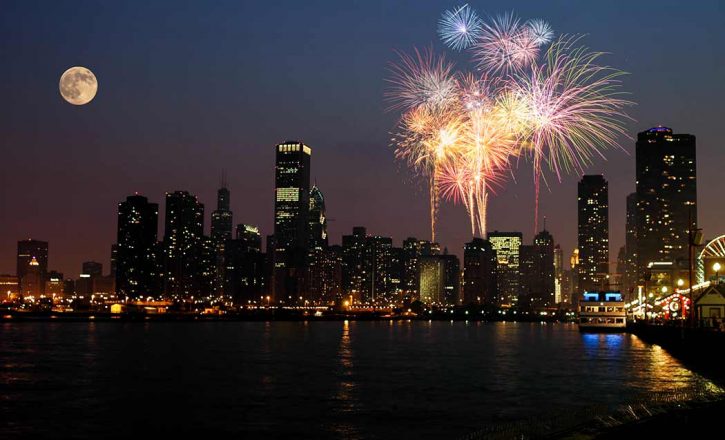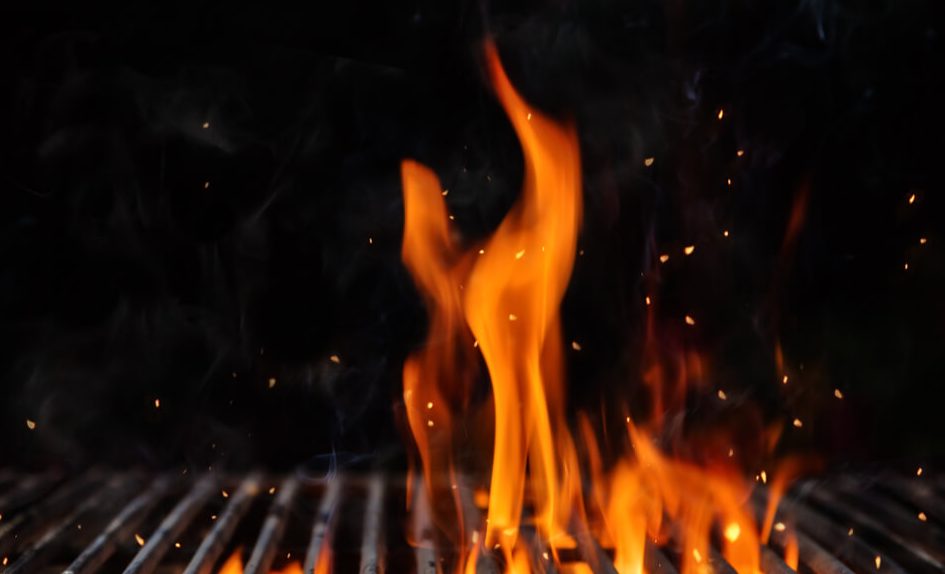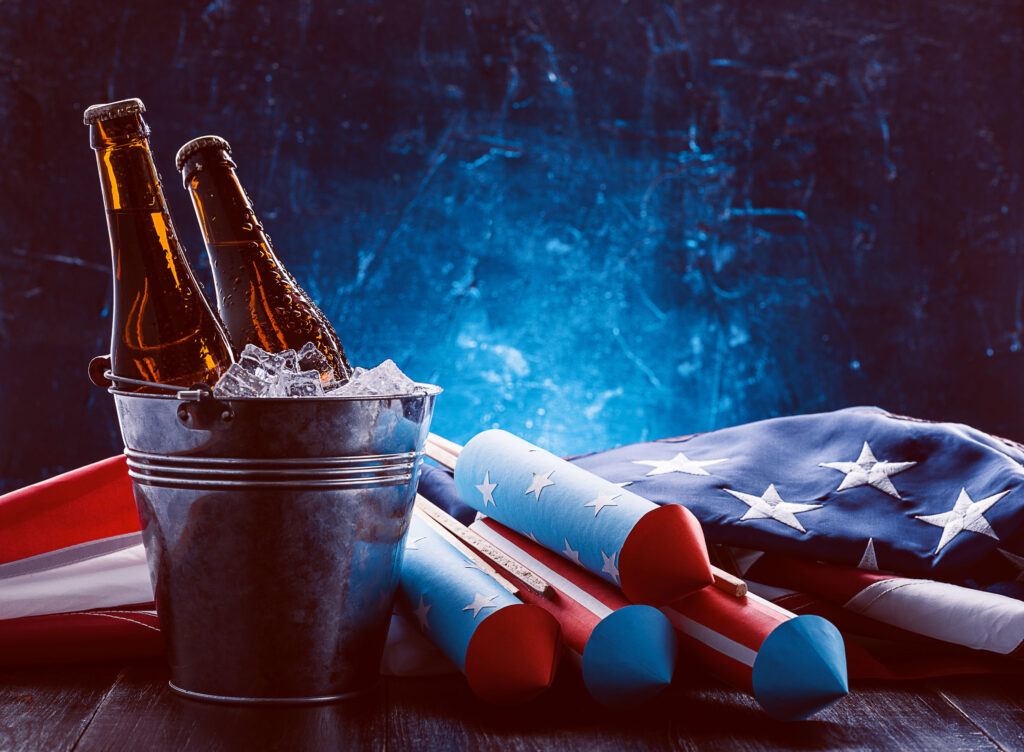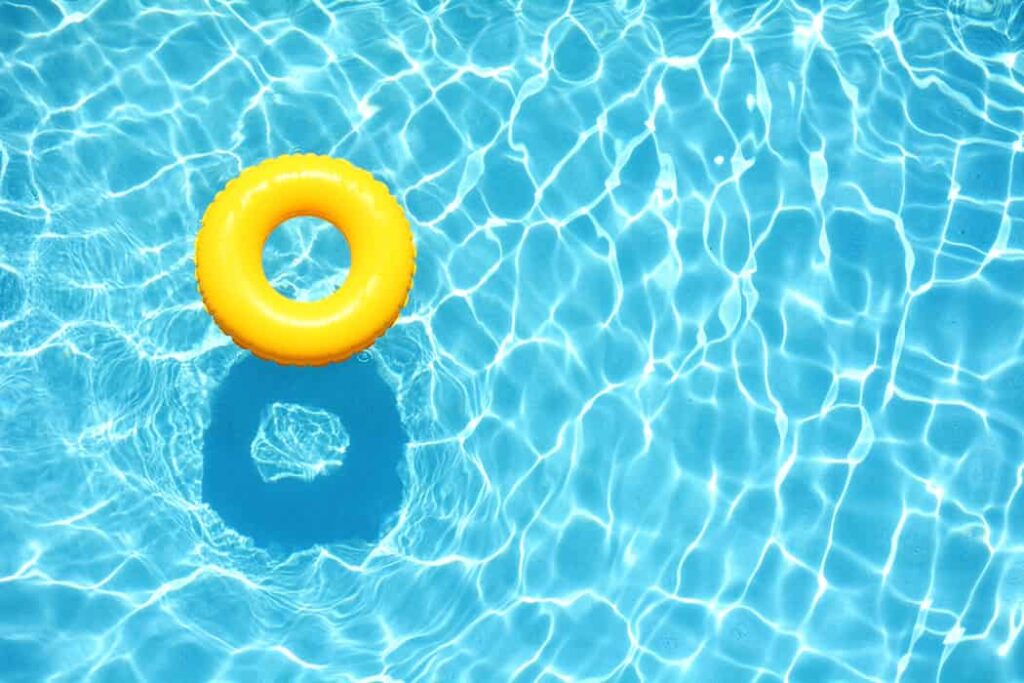The Fourth of July is a perfect time to spend quality time with your friends and family and celebrate. Is there anything better than watching fireworks at Navy Pier, grilling, swimming, and boating in one of Chicago’s many harbors? While the upcoming holiday weekend is sure to be fun-filled, the activities surrounding the Fourth of July are often dangerous.
It’s crucial to be ready for anything unexpected as you plan your holiday weekend activities. Lerner and Rowe Injury Attorneys remind revelers to take Chicago Fourth of July safety seriously with these five tips.
#1: Leave the Fireworks to the Pros

The state of Illinois has outlawed the vast majority of fireworks due to public safety issues. All fireworks, from the smaller varieties available at your local store seasonally to the large mortar displays, can be dangerous. One of the most beloved July 4 fireworks is handheld sparklers. But did you know that sparklers can burn about as hot as 2,000 degrees Fahrenheit?
Burn injuries from fireworks are a common occurrence at emergency rooms on the Fourth of July. If not handled properly, any variety of fireworks can cause severe burns. Sparklers are fun for everyone, especially children. However, children account for more than a third of emergency room visits for fireworks-related injuries.
Don’t allow young children to play with sparklers and supervise older children with sparklers carefully.
Illinois has strict fireworks laws and requires residents to acquire a permit for fireworks. On the off chance that you are able to acquire a permit to set off legal fireworks, be sure to follow these additional safety tips:
- Light consumer novelty effects on the ground and away from bushes, grass, trees, and vehicles.
- Keep spectators at a safe distance.
- Only allow sober and responsible adults to light fireworks.
- To put out fires, keep a hose, bucket of water, and fire extinguisher nearby.
- To prevent reignition, spent fireworks should be kept in a bucket of water overnight.
Finally, take into consideration that fireworks can disturb your neighbors, particularly those with pets and PTSD. Chicago Fourth of July safety begins with being respectful and letting the experts handle the large fireworks.
#2: Respect the Grill

Hamburgers and hot dogs are a Fourth of July staple.
Hamburgers and hot dogs are a Fourth of July staple. Whether you’re firing up the grill at home or attending a barbecue, there are a few things to consider in order to keep yourself and others safe.
While you might be the best grill master in the neighborhood, it’s important to remember grill injuries are common, affecting approximately 22,000 Americans per year. Grills get extremely hot and propane can be unpredictable—it doesn’t take much to get a burn from a grill. Follow these Chicago Fourth of July safety tips to make your backyard barbecue an injury-free success.
- To help prevent the spread of germs, thoroughly wash your hands and grilling equipment before touching any food.
- Clean your grill before and after every use. This prevents grease and fat buildup, which can cause fires.
- Check hoses in gas grills for cracks or holes that could allow gas to leak and make sure the lid is open before lighting it.
- Never add starter fluid to coals on a charcoal grill that has already been ignited.
- Avoid grilling on surfaces that could catch fire or in enclosed spaces like garages. Do not grill close to tree limbs or eaves.
- Use a grill pad or splatter mat underneath the grill to protect your decks or patios, and make sure your barbecue is set up on a sturdy, flat surface.
- Children, pets, and inebriated people should all be kept away from the barbecue. Unexpected sparks can start open fires.
- Make sure the tank is shut off and the stove’s knobs are turned off when not in use. Spare propane tanks should be kept in a cool location out of direct sunlight, and disconnected hoses should be covered with safety caps.
Extra Food Preparation Tips
- Always purchase meat from a reputable butcher shop or supermarket. Before cooking, verify the expiration date if you are purchasing pre-packaged meat. Keep raw meats away from dishes that are ready to consume.
- Although egg salads and deviled eggs are common fare at holiday potlucks, the heat may quickly cause them to spoil. Be sure to keep these foods chilled.
- Be cautious of other people’s food sensitivities and allergies. To make sure you have alternate options available for people with dietary restrictions, it may be beneficial to ask attendees in advance.
#3: Party Responsibly

Beer and cocktails are a common sight on the Fourth of July, but can also be a serious liability. If you’re serving alcohol during your celebration, do not over serve your guests. Don’t be afraid to take the keys away from an inebriated driver to prevent drunk driving.
To aid in the metabolism of the alcohol and prevent dehydration, have plenty of food and water readily available for your guests. Also, don’t serve alcohol to anyone under the age of 21.
Make sure your guests don’t drive if they’ve been drinking too much. Ensure they get home safely, either have a guest room accessible, call a cab, or download a rideshare app.
#4: Don’t Rock the Boat
For many Chicagoans, celebrating the Fourth of July on the water is a rite of passage. Use these Chicago Fourth of July safety suggestions if you’ll be boating during the long weekend.
- Check the weather to make sure the water is suitable for boating. Be aware of thunderstorms, hail, high winds, or heat advisories to help prevent heat stroke.
- Like driving a car, don’t drink if you’re driving a boat.
- Passengers should also limit their alcohol consumption to prevent Chicago boat accidents and injuries.
- Tell someone where you’re going and when you expect to return.
- Wear the right safety equipment, such as a life jacket that is fitted properly.
- Follow all Illinois boating laws, such as displaying a bright orange flag from the helm’s highest point when towing someone behind the boat.
#5: Keep Your Head Above Water

Many Fourth of July celebrations include swimming in lakes and pools, which is a wonderful way to stay active and escape the summer heat. However, it’s crucial to be aware of the very real risk of drowning and swimming pool accidents, which, according to the National Safety Council (NSC), are among the leading causes of death in children under the age of 15, whether you’re in a lake or at a domestic pool. To help reduce swimming injuries, use these suggestions.
- Always keep an eye on children, and designate a responsible person to supervise the pool, preferably someone who has had CPR training.
- Don’t presume someone else is keeping an eye on the youngsters. Even if a lifeguard is there, they can’t simultaneously keep an eye on everyone.
- Teach children and remind teenagers not to run around the pool. Slick surfaces can easily lead to a slip and fall accident.
- If a child hasn’t yet learned how to swim or isn’t a strong swimmer, don’t rely on air-filled water swings to keep them safe. Invest in flotation devices approved by the U.S. Coast Guard and avoid cheap products, which are more likely to be dangerous or defective.
- Avoid diving into residential pools or bodies of water you don’t know the depth of. Diving into shallow water can lead to traumatic brain injuries and spinal cord injuries.
Injured on July Fourth? Contact a Chicago Personal Injury Lawyer
Accidents can happen even to the most cautious people. The injuries that follow are frequently the result of someone else’s negligence.The Chicago personal injury lawyers at Lerner and Rowe Injury Attorneys understand that accidents can happen anytime, anywhere.
If you’ve been injured in a Fourth of July accident, call Lerner and Rowe Injury Attorneys for help at (708) 222-2222 any time, or visit us online for a LiveChat. Our office hours are 8:00 a.m-5:00 p.m, Monday through Friday, but we are available 24/7 to take your call.
We’ll arrange a no-obligation consultation to go through your case and lay out all of your choices. Call today; there is no cost unless we win!
The information on this blog is for general information purposes only. Nothing herein should be taken as legal advice for any individual case or situation. This information is not intended to create, and receipt or viewing does not constitute, an attorney-client relationship.



